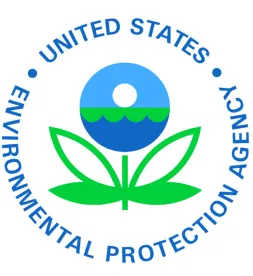In February 2013, EPA proposed to issue a SIP Call in 26 states, including Kentucky, regarding affirmative defenses in state regulations for excess emissions during startup, shutdown, and malfunction (SSM) events. At that time, EPA found provisions in the DAQ and LMAPCD SIPs would allow certain sources to be excused from compliance with emission standards where unplanned events, such as malfunctions, were deemed beyond the control of the permittee. Jefferson County, Kentucky revised its SSM provisions to eliminate the affirmative defense, and that SIP revision has been approved by EPA. DAQ had submitted correspondence to EPA on May 13, 2013 to indicate the state regulation provided for use of enforcement discretion and did not limit or exclude the authority of EPA and citizens from taking enforcement action under the Clean Air Act. However, EPA determined that clarification was necessary and proposed to find 401 KAR 50:055 § 1(1) substantially inadequate. See February 22, 2013 proposal at 12506, 12507.
On September 17, 2014, EPA issued a supplemental notice of proposed rulemaking relating to its February 2013 proposal for a SIP Call with respect to state SSM affirmative defenses. In the supplemental notice, EPA notes that the April 2014 decision of the U.S. Court of Appeals for the D.C. Circuit that invalidated an affirmative defense for malfunctions in the NESHAP for Portland Cement Manufacturing, indicates the states, like EPA, have no authority through SIP provisions to alter the jurisdiction of federal courts to assess civil penalties for violations of Clean Air Act requirements through affirmative defense provisions. EPA found the criteria for the affirmative defense under the Portland Cement NESHAP are functionally the same as the criteria that EPA previously recommended to the states for SIP provisions relating to affirmative defenses for excess emissions during malfunctions. Accordingly, EPA is proposing to revise its SSM policy to interpret the Clean Air Act to preclude affirmative defense provisions in SIPs.
In its September 17, 2014 supplemental notice, EPA notes that it has reevaluated each of the specific affirmative defense provisions previously identified in state SIPs in its February 2013 proposal. As a result of its reevaluation, EPA listed 17 states with SIP affirmative defense provisions that would be subject to a SIP Call. EPA noted that for Jefferson County, the SIP provisions for which it proposed a SIP Call in February 2013 have already been substantially removed from the SIP and the SIP revision has been approved by EPA as of June 2014. The supplemental notice stated EPA’s position on DAQ’s SSM regulation was unchanged from its February 2013 proposal to issue a SIP Call.
By letter dated November 19, 2014, EPA responded to a petition by Earthjustice requesting that EPA amend its NSPS and NESHAP regulations to delete affirmative defenses against civil penalties during SSM events. EPA noted that it had already commenced the process to remove the affirmative defenses from NSPS and NESHAP regulations consistent with the April 18, 2014 decision by the United States Court of Appeals for the D.C. Circuit that invalidated the affirmative defense for emission exceedances due to malfunctions in the Portland Cement Manufacturing NESHAP. EPA noted in the petition response it would continue the ongoing process of removing affirmative defenses from the remaining rules that were the subject of the petition as expeditiously as practicable.
On May 22, 2015, EPA signed its final rule on the SIP Call and the rule was published in the June 12, 2015 Federal Register. The final SIP Call requires 36 states to revise their affirmative defense regulations for excess emissions during startups and shutdown. In this region, affected states include Kentucky, Ohio, West Virginia, Indiana and Illinois.
With respect to the Kentucky, EPA explained that 401 KAR 50:055 authorizes the Director of DAQ to excuse excess emissions from a finding of non-compliance where various factors are demonstrated without additional public review. EPA believes that could be viewed as precluding enforcement action by EPA or in citizen suits. In its response to DAQ’s argument in comments to EPA, EPA stated the regulation was sufficiently ambiguous, despite DAQ’s position that it only provides for enforcement discretion, that revision of 401 KAR 50:055 pursuant to a SIP Call is necessary. Accordingly, DAQ will need to revise 401 KAR 50:055 in response to the SIP call.
EPA’s SIP call poses special concerns for emissions during startups where the permit does not address startup emission conditions or limits. It also raises questions as to whether Title V permits will need to be re-opened to remove language/conditions based upon 401 KAR 50:055 in its current form.


 />i
/>i

